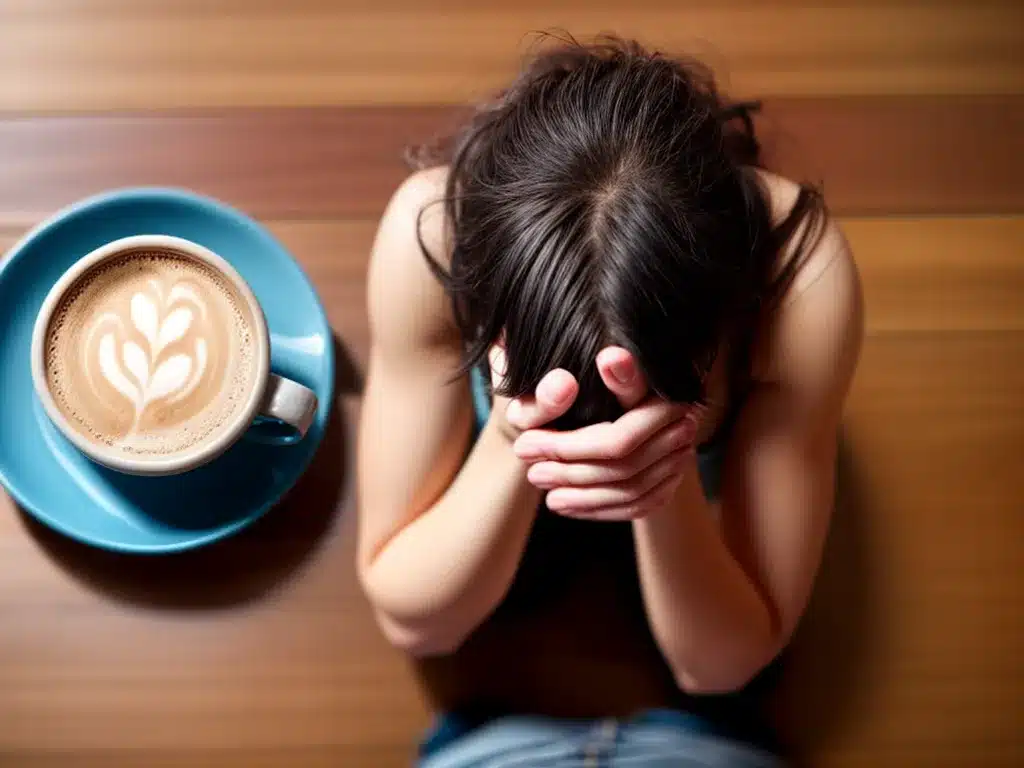 Caffeine and Anxiety: Does Coffee Make Anxiety Worse?” />
Caffeine and Anxiety: Does Coffee Make Anxiety Worse?” />
The relationship between caffeine and anxiety
The main question regarding the connection between caffeine and anxiety is whether consuming coffee can make pre-existing anxiety symptoms worse. As an individual experiencing occasional nervousness or unease, I was curious to learn how my daily cup of java might be impacting my mental well-being. There is evidence that for some people, caffeine can be a trigger for heightened stress and thus exacerbate anxious feelings and worries.
How caffeine might aggravate anxiety
Caffeine is a central nervous system stimulant. When ingested, it spreads throughout the body and binds to adenosine receptors in the brain. This interaction mimics the effects of the neurotransmitter adenosine, resulting in several physiological responses like increased heart rate, boosted energy levels, and improved focus and alertness. However, for individuals prone to nervousness or with a diagnosed anxiety disorder, this stimulation of the central nervous system can provoke worry and unease.
Some potential mechanisms by which caffeine may worsen anxiety include:
| Mechanism | Description |
|-|-|
| Improved alertness and physical sensation | The jolt of energy from caffeine may intensify bodily sensations which some anxious people misinterpret as physical symptoms of panic or anxiety.|
| Stimulation of sympathetic nervous system | Caffeine triggers the “fight or flight” stress response in the body by stimulating the sympathetic nervous system, increasing signs of anxiety.|
| Interference with sleep | Insomnia or disrupted sleep caused by caffeine leaves people feeling fatigued which exacerbates anxiety and worry.|
| Withdrawal symptoms | Cessation of caffeine in dependent individuals triggers withdrawal headaches and flu-like symptoms that resemble anxious panic attacks.|
Are some individuals more vulnerable?
Whether caffeine truly makes anxiety worse seems to depend on the individual and their existing disposition towards stress and worry. In general, those with a diagnosed anxiety disorder or who frequently experience anxious thoughts/feelings appear more sensitive to the stimulant effects of caffeine. Someone without such a history is less likely to find their anxious symptoms exacerbated by moderate coffee consumption. Additionally, the caffeine content of what is consumed along with other mediating factors like sleep, stress levels, medication use will also impact one’s vulnerability.
For anxious individuals, it is worthwhile paying close attention to how caffeine makes one feel. If coffee seems to reliably provoke or intensify unpleasant physical sensations, worries, or panic attacks, then limiting intake may provide relief. At the very least, it is sensible for those susceptible to become anxious to avoid consuming caffeine in the evenings or when already feeling stressed. Tracking caffeine and anxiety levels can help discern any potential relationship between the two for an individual.
Reducing caffeine to see if anxiety improves
For me, given my history of occasional nervousness, the prudent approach seemed to be gradually reducing my daily coffee intake to see if limiting caffeine makes any difference to my anxious feelings. Over several weeks, I slowly cut back one cup at a time to observe the impact with an objective lens. While monitoring anxiety indicators such as worrying thoughts, physiological symptoms, and how calm I felt, I noticed a slight yet perceptible improvement coinciding with the caffeine decrease. This experiment suggests caffeine may indeed have been a contributing factor to my experience of anxiousness.
Moving forward, I will be more mindful of my caffeine consumption and limit coffee to no more than one cup in the mornings on most days. When under greater pressure or stressed, I will avoid caffeinated drinks entirely or switch to decaf alternatives. Having gained a better understanding of the potential relationship between caffeine and anxiety through personal monitoring, awareness is key for me to manage this dietary trigger of uneasy emotions.
In summary
While caffeine may exacerbate anxious feelings for some, not all who consume it regularly will have issues with worry or nervousness. By paying close attention to individual reactions and gradually reducing intake if needed, one can determine whether limiting caffeine provides any benefit for anxiousness. Awareness, balanced moderation and switching to decaf substitutes when experiencing stress are strategies worth exploring. Overall, the connection between caffeine and anxiety seems complex with many personal factors involved. For anxious individuals, it is useful to experiment and discern one’s own sensitivity.



















